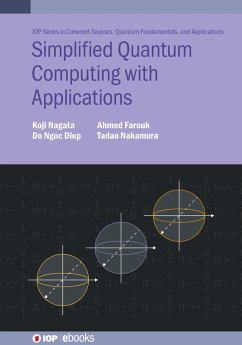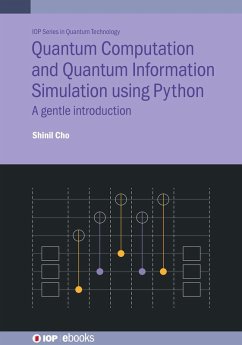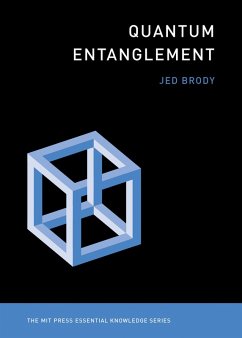
Innovative Quantum Computing (eBook, ePUB)

PAYBACK Punkte
40 °P sammeln!
This book presents new and prospective approaches to quantum computing. It introduces the many possibilities to further develop the mathematical methods of quantum computation and its applications to future functioning and operational quantum computers.In this book, various extensions of the qubit concept, starting from obscure qubits, superqubits and other fundamental generalizations, are considered. New gates, known as higher braiding gates, are introduced. These new gates are implemented as an additional stage of computation for topological quantum computations and unconventional computing ...
This book presents new and prospective approaches to quantum computing. It introduces the many possibilities to further develop the mathematical methods of quantum computation and its applications to future functioning and operational quantum computers.
In this book, various extensions of the qubit concept, starting from obscure qubits, superqubits and other fundamental generalizations, are considered. New gates, known as higher braiding gates, are introduced. These new gates are implemented as an additional stage of computation for topological quantum computations and unconventional computing when computational complexity is affected by its environment. Other generalizations are considered and explained in a widely accessible and easy-to-understand way.
Presented in a book for the first time, these new mathematical methods will increase the efficiency and speed of quantum computing.
Key Features
In this book, various extensions of the qubit concept, starting from obscure qubits, superqubits and other fundamental generalizations, are considered. New gates, known as higher braiding gates, are introduced. These new gates are implemented as an additional stage of computation for topological quantum computations and unconventional computing when computational complexity is affected by its environment. Other generalizations are considered and explained in a widely accessible and easy-to-understand way.
Presented in a book for the first time, these new mathematical methods will increase the efficiency and speed of quantum computing.
Key Features
- Provides new mathematical methods for quantum computing
- Presents material in a widely accessible way
- Contains methods for unconventional computing where there is computational complexity
- Provides methods to increase speed and efficiency
Dieser Download kann aus rechtlichen Gründen nur mit Rechnungsadresse in A, D ausgeliefert werden.













